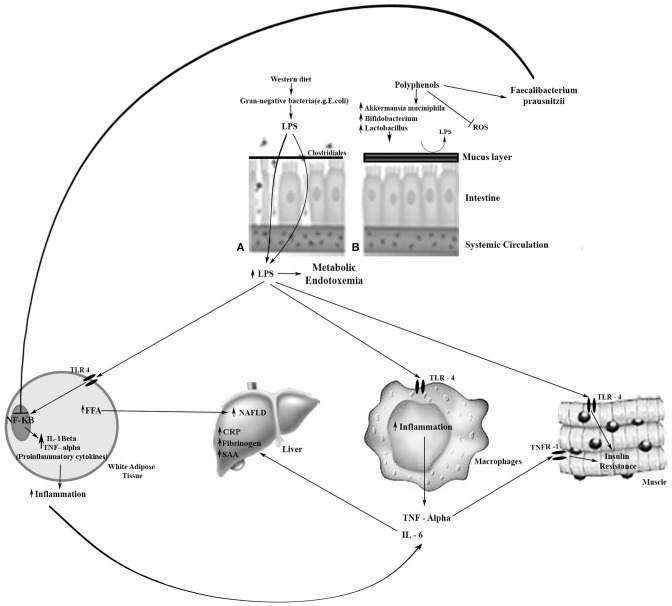Figure 1.
Metabolic effects of LPS and the effect of polyphenols on beneficial bacteria on enterocytes. (A) Leaky and inflamed gut. A Western diet, rich in simple carbohydrates (sugar), saturated fatty acids, and low in dietetic fiber, may cause obesity-related dysbiosis, and, consequently, loss of gut barrier integrity. The reduction of mucosal layer thickness and increase in the gut barrier permeability favors the LPS pass through the intestinal cells to the bloodstream, resulting in metabolic endotoxemia. LPS is transported to the target tissues by chylomicrons. LPS binds to TLR-4 in the target tissue and triggers an inflammatory response. (B) Normal gut. Dietary polyphenols may sequester reactive oxygen species (ROS); increase Bifidobacterium spp., Lactobacillus spp., and Akkermansia muciniphila which are associated with the preservation of the integrity of the intestinal mucus layer and intestinal barrier function; and increase Faecalibacterium prausnitzii which inhibits the NF-kB activation. Thereby, there is a reduction in lipid storage, insulin resistance, and inflammation. →, Activation; ⊣, Inhibition; CRP, C-reactive protein; FFA, free fatty acids; IL, Interleukin; LPS, lipopolysaccharide; NAFLD, non-alcoholic fatty liver disease; NF-kB, nuclear factor-kappa B; SAA, serum amyloid A; TLR-4, Toll-like receptor-4; TNF-α, tumor necrosis factor alpha; TNFR-1, TNF receptor-1.

